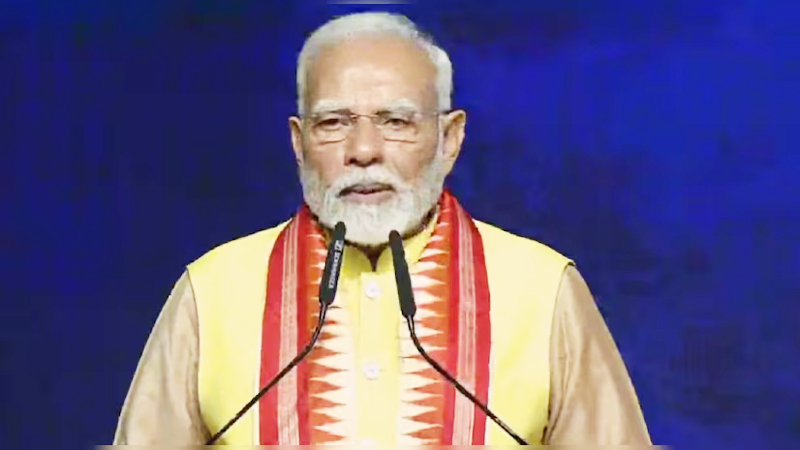NEW DELHI, Dec 12: On Thursday, Prime Minister Narendra Modi reaffirmed India’s dedication to fostering long-term peace, stability, and security in West Asia during a meeting with Sheikh Abdullah bin Zayed Al Nahyan, Deputy Prime Minister of the UAE. Modi highlighted the significance of the India-Middle East-Europe Corridor (IMEEC) as a groundbreaking initiative aimed at enhancing regional connectivity and prosperity, according to an official statement.
Described as a transformative project, the IMEEC plans to create an extensive network of roads, railroads, and shipping routes linking India, Saudi Arabia, the United States, and Europe, with the goal of integrating Asia, the Middle East, and the West.
The IMEEC was finalized during the G20 Summit held in September last year in Delhi, where an agreement was signed by India, Saudi Arabia, the European Union, the United Arab Emirates (UAE), the US, and other G20 partners.
Sheikh Abdullah, who is also the UAE’s foreign minister, is on a three-day visit to India. “He provided insights into the current situation in West Asia, and the Prime Minister reiterated India’s commitment to supporting long-term peace, stability, and security in the region,” the statement noted.
The Prime Minister’s focus on peace and stability in West Asia follows recent developments, including the overthrow of President Bashar Assad’s government in Syria by rebel forces and the ongoing situation in Gaza. Earlier this week, India called for a peaceful and inclusive political process in Syria led by its people to restore stability.
During the meeting, Modi and Al Nahyan emphasized strengthening the comprehensive strategic partnership between India and the UAE, particularly in technology, energy, and cultural exchanges, as per the Indian report.
Modi extended his warm regards to UAE President Sheikh Mohamed bin Zayed Al Nahyan, expressing satisfaction with the frequent high-level visits, including the September trip by Abu Dhabi Crown Prince Sheikh Khaled bin Mohamed bin Zayed Al Nahyan, which he described as a reflection of “generational continuity” in their bilateral relations.
This meeting occurred in advance of the scheduled India-UAE Strategic Dialogue.
Since Modi’s significant visit to the UAE in August 2015, the relationship has evolved into a Comprehensive Strategic Partnership.
Their bilateral trade and investment relations saw substantial growth following the signing of a Comprehensive Economic Partnership Agreement (CEPA) in 2022. This trade pact offers multiple advantages, including the reduction and elimination of tariffs, the promotion of an open trade environment, and enhanced market access for service providers across various sectors. It also tackles technical barriers and expands access to government procurement opportunities.
With bilateral trade amounting to approximately USD 85 billion in 2022-23, the UAE and India rank among each other’s top trading partners, with the UAE also listed as one of the top four investors in India regarding foreign direct investment during the same period.
Additionally, the thriving Indian community, approximately 3.5 million strong, constitutes the largest expatriate group in the UAE. (PTI)


Leave a Reply